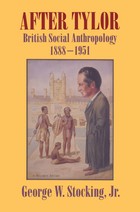
"The publication of After Tylor, taken together with Victorian Anthropology, represents a milestone in the historiography of the behavioural sciences."—Robert Ackerman, London Review of Books
"After Tylor is thus an effort to reconstruct and understand modes of thought which—though hardly discontinuous—were still rather different from our own. In this, it is utterly and completely successful."—Robert Alun Jones, American Journal of Sociology
"This is magnificent scholarship. Furthermore it proves that a discourse intended to complicate received ideas can also be eminently readable."—Michael Herzfeld, American Scientist
"Formidable as its scope is, this account is also eminently readable. The layering of each character will ensure that it can be read at all levels of anthropological sophistication."—Marilyn Strathern, Times Higher Education Supplement
"There are many reasons that George Stocking is generally recognized as the leading historian of anthropology. His ability to breathe life into the dead is not the least of them." —Henry Munson, Jr., Religion
"Few scholarly books of this considerable length deserve to be read from cover to cover, but Stocking's After Tylor is surely one of them."—Tamara Kohn, Metascience
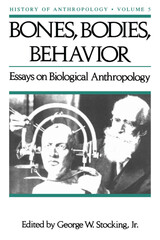
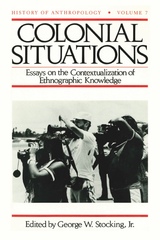
As European colonies in Asia and Africa became independent nations, as the United States engaged in war in Southeast Asia and in covert operations in South America, anthropologists questioned their interactions with their subjects and worried about the political consequences of government-supported research. By 1970, some spoke of anthropology as “the child of Western imperialism” and as “scientific colonialism.” Ironically, as the link between anthropology and colonialism became more widely accepted within the discipline, serious interest in examining the history of anthropology in colonial contexts diminished.
This volume is an effort to initiate a critical historical consideration of the varying “colonial situations” in which (and out of which) ethnographic knowledge essential to anthropology has been produced. The essays comment on ethnographic work from the middle of the nineteenth century to nearly the end of the twentieth, in regions from Oceania through southeast Asia, the Andaman Islands, and southern Africa to North and South America.
The “colonial situations” also cover a broad range, from first contact through the establishment of colonial power, from District Officer administrations through white settler regimes, from internal colonialism to international mandates, from early “pacification” to wars of colonial liberation, from the expropriation of land to the defense of ecology. The motivations and responses of the anthropologists discussed are equally varied: the romantic resistance of Maclay and the complicity of Kubary in early colonialism; Malinowski’s salesmanship of academic anthropology; Speck’s advocacy of Indian land rights; Schneider’s grappling with the ambiguities of rapport; and Turner’s facilitation of Kaiapo cinematic activism.
“Provides fresh insights for those who care about the history of science in general and that of anthropology in particular, and a valuable reference for professionals and graduate students.”—Choice
“Among the most distinguished publications in anthropology, as well as in the history of social sciences.”—George Marcus, Anthropologica
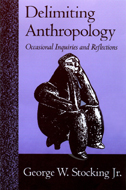
The first quartet focuses on the work of Franz Boas and the emergence of "Boasian Culturalism." In the second set of essays Stocking addresses the careers of three British "evolutionaries"—Lord Kames; Sir E. B. Tylor; and Sir James G. Frazer—tracking the development of cultural evolutionary thought from its origins in the Scottish Enlightenment through its early twentieth-century afterglow in Frazer's The Golden Bough.
The third group of essays looks at institutions and national traditions, including British ethnography exemplified in the fieldwork manual Notes and Queries; the humanistic Parisian Société d'Ethnographie; the early tension at the Laboratory of Anthropology in Santa Fe between aspiring local amateur anthropologists and professionals from Eastern universities; and the history of ethnographic museums in the European tradition. In closing, Stocking offers reflections on major tendencies in anthropology from the eighteenth century to the present.
"George Stocking is without rival as an historian of modern anthropology. He is trained as an historian, and he knows anthropologists from having lived among them. This collection is indispensable for any one or place concerned with the subject."—Dell Hymes, editor of Reinventing Anthropology
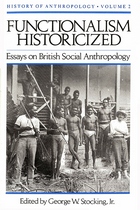
" This volume is likely to prove indispensable to historians of anthropology in general and of British anthropology in particular. There are a wide range of historical skills on display, from traditional textual analysis to historical sociology of the most sophisticated sort, and there is a more or less thorough chronological coverage from the era of classical evolutionism virtually up to the present. One can only hope that historicizing anthropologists will sample some of these wares."—Journal of the History of the Behavioral Sciences
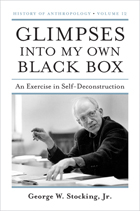
George W. Stocking, Jr., has spent a professional lifetime exploring the history of anthropology, and his findings have shaped anthropologists’ understanding of their field for two generations. Through his meticulous research, Stocking has shown how such forces as politics, race, institutional affiliations, and personal relationships have influenced the discipline from its beginnings. In this autobiography, he turns his attention to a subject closer to home but no less challenging. Looking into his own “black box,” he dissects his upbringing, his politics, even his motivations in writing about himself. The result is a book systematically, at times brutally, self-questioning.
An interesting question, Stocking says, is one that arouses just the right amount of anxiety. But that very anxiety may be the ultimate source of Stocking’s remarkable intellectual energy and output. In the first two sections of the book, he traces the intersecting vectors of his professional and personal lives. The book concludes with a coda, “Octogenarian Afterthoughts,” that offers glimpses of his life after retirement, when advancing age, cancer, and depression changed the tenor of his reflections about both his life and his work.
This book is the twelfth and final volume of the influential History of Anthropology series.
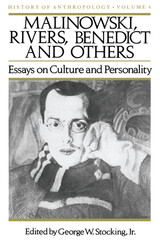
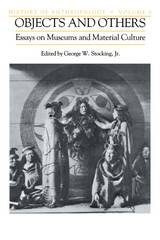
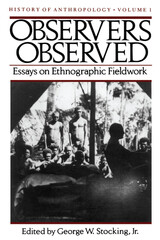
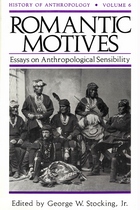
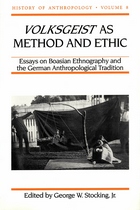
READERS
Browse our collection.
PUBLISHERS
See BiblioVault's publisher services.
STUDENT SERVICES
Files for college accessibility offices.
UChicago Accessibility Resources
home | accessibility | search | about | contact us
BiblioVault ® 2001 - 2024
The University of Chicago Press









